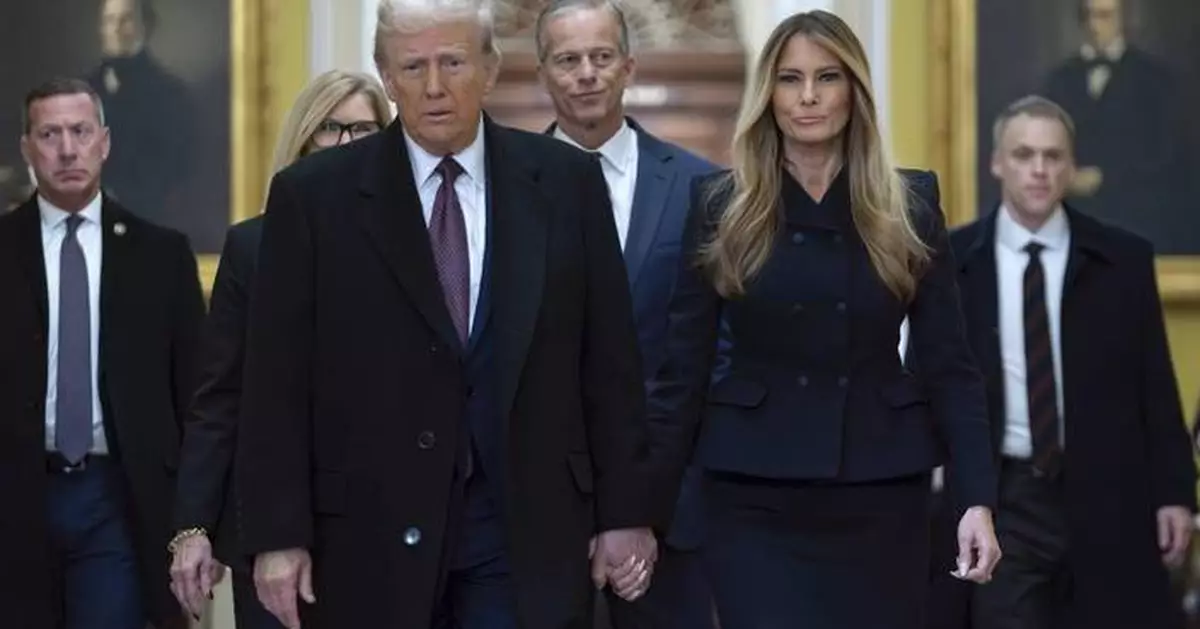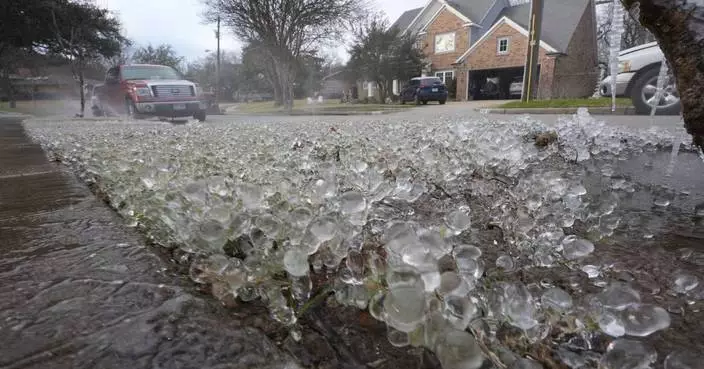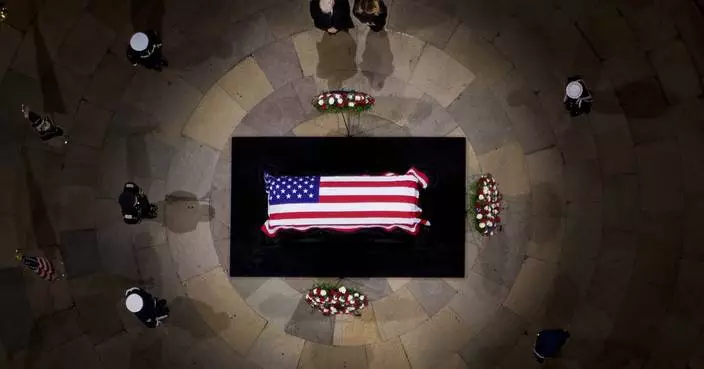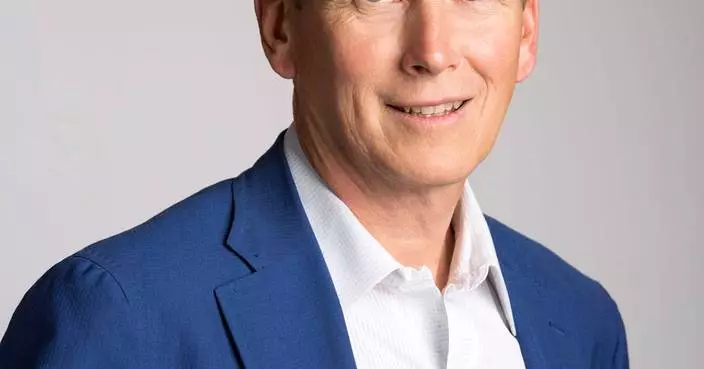NEW YORK (AP) — Donald Trump ran on a return to his "America First” foreign policy platform. The U.S., he said, could no longer afford to be the world's policeman. On his watch, he pledged, there would be no new wars.
But since winning a second term, the president-elect has been embracing a new imperialist agenda, threatening to seize the Panama Canal and Greenland — perhaps by military force — and saying he will use economic coercion to pressure Canada to become the nation's 51st state.
“Canada and the United States, that would really be something. You get rid of that artificially drawn line, and you take a look at what that looks like and it would also be much better for national security,” Trump said of the world's longest international border and the U.S.'s second-largest trade partner.
Such talk of undermining sovereign borders and using military force against allies and fellow NATO members — even if said lightly — marks a stunning departure from decades-old norms about territorial integrity. And it is rhetoric that analysts say could embolden America's enemies by suggesting the U.S. is now OK with countries using force to redraw borders at a time when Russia is pressing forward with its invasion of Ukraine and China is threatening Taiwan, which it claims as its own territory.
“If I'm Vladimir Putin or Xi Jinping, this is music to my ears," said John Bolton, Trump's former national security adviser-turned-critic, who also served as ambassador to the United Nations.
Trump's language, reflecting a 19th century world view that defined European colonial powers, comes as international allies were already grappling with the implications of his return to the world stage.
Gerald Butts, outgoing Canadian Prime Minister Justin Trudeau’s former top adviser and a longtime close friend, said Trump seems more emboldened than when he first took office in 2017.
“I think he’s feeling a lot less unencumbered than he was the last time. There are no restraints. This is maximum Trump,” he said.
Butts is part of a WhatsApp group with others who staffed heads of state and government during the first Trump term. “Someone joked that the big fear the last time was that he didn’t know what he was doing and the big fear this time is that he does,” he recounted.
Trump's swaggering rhetoric also marks a continuation of the kind of testosterone-heavy energy that was a signature of his campaign, particularly as he worked to win over younger male voters with appearances on popular podcasts.
Charlie Kirk, a key Trump ally who joined Trump's eldest son, Donald Trump Jr., on a trip to Greenland this week, argued on his podcast Wednesday that it was imperative for the U.S. to control Greenland. The island is an autonomous territory of Denmark, a longtime U.S. ally and a founding NATO member.
Beyond the country's strategic location in the Arctic and its rich resources, Kirk said, “there is this other component. It makes America dream again, that we’re not just this sad, low-testosterone, beta male slouching in our chair, allowing the world to run over us."
"It is the resurrection of masculine American energy. It is the return of Manifest Destiny,” said Kirk, whose Turning Point group helped with Trump’s get-out-the-vote effort.
Trump allies have long argued that his bluster and most audacious statements are all part of his complex negotiating tactics. Aides note that nearly half of U.S. shipping containers travel through the Panama Canal and that key canal ports are controlled by a Hong Kong–based firm.
Greenland is home to the Pituffik Space Base, the northernmost U.S. post, which plays a key role in missile warnings and space surveillance. And China and Russia have been making their own investments in the Arctic at a time when new potential shipping routes are opening as ice caps melt.
Canada, Trump's team notes, spends far less on defense than its southern neighbor.
“Every decision President Trump makes is in the best interest of the United States and the American people. That’s why President Trump has called attention to legitimate national security and economic concerns regarding Canada, Greenland and Panama," said Trump-Vance Transition spokesperson Karoline Leavitt.
But Michael McFaul, the Obama-era ambassador to Russia who now serves as director of the Freeman Spogli Institute for International Studies at Stanford University and a senior fellow at the Hoover Institution, said Trump's language is counterproductive to U.S. national security interests.
“President Trump is about to take over at one of the most dangerous times in American history," he said. "We will be best at addressing those threats with allies. Allies are our superpower. And so I wish he would focus on the real threats and not invent threats.”
Trump's trolling is not the negotiating ploy of “crazy genius,” McFaul said, and will have consequences.
“We’ve got serious enemies and adversaries in the world, and we're better off with the Canadians and the Danes with us than pissed off with us," he said.
Indeed, Canadian officials have responded with increasing anger.
“The joke is over,” Dominic LeBlanc, the country’s finance minister and point person for U.S.-Canada relations, said Wednesday. “It’s a way for him, I think, to sow confusion, to agitate people, to create chaos knowing this will never happen."
Mexican President Claudia Sheinbaum responded with sarcasm Wednesday to another Trump proposal: to rename the Gulf of Mexico as the “Gulf of America." Standing before an old map, she quipped that North America should be renamed “América Mexicana,” or “Mexican America,” because a founding document dating from 1814 that preceded Mexico’s constitution referred to it that way.
“That sounds nice, no?” she said.
Denmark and Panama have responded similarly, with Panama's foreign minister, Javier Martínez-Acha, saying, “The sovereignty of our canal," which the country has controlled for more than 25 years, “is not negotiable and is part of our history of struggle and an irreversible conquest.”
Mike O’Hanlon, a senior fellow at the Brookings Institution, said he has been surprised by Trump's recent comments given his previous relative disinterest in using force.
While Trump boasted that he had a bigger and more powerful “nuclear button” than North Korea and bombed Iranian general Qassim Soleimani during his first term, he also cast himself during the campaign as a president who had started no new wars and who would be able to prevent World War III.
O’Hanlon noted that NATO members are sworn to defend each other if they are attacked, creating what would be an unprecedented situation were Trump to actually try to forcefully take Greenland.
“You could make a strong argument that the rest of NATO would be obliged to come to Denmark’s defense," he said. “It does raise the possibility, at whatever crazy level, of direct military force.”
Bolton has long criticized Trump for lacking a coherent policy strategy, saying his approach is "transactional, ad hoc, episodic and really viewed from the prism of how it helps Donald Trump.”
He said Trump has never liked Trudeau, and was clearly enjoying trolling the Canadian leader as he railed against the nations' trade imbalance. Canada, a resource-rich nation, sells more goods to the U.S. than it buys.
But Bolton said the president-elect's expansionist talk about Canada and Greenland is likely to backfire, adding: “When you do things that make it less likely you’re going to achieve the objectives, that’s not master bargaining, that’s crazy."
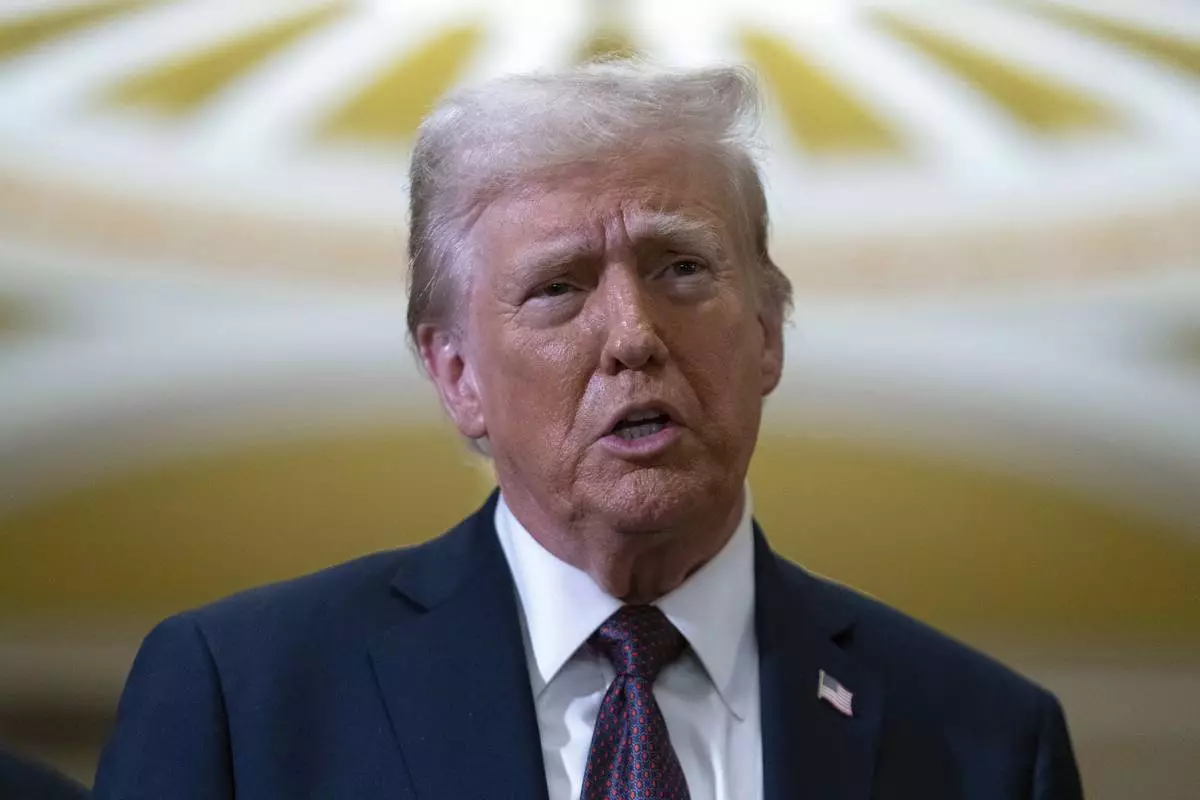
President-elect Donald Trump talks to reporters after a meeting with Republican leadership at the Capitol on Wednesday, Jan. 8, 2025, in Washington. (AP Photo/Jose Luis Magana)
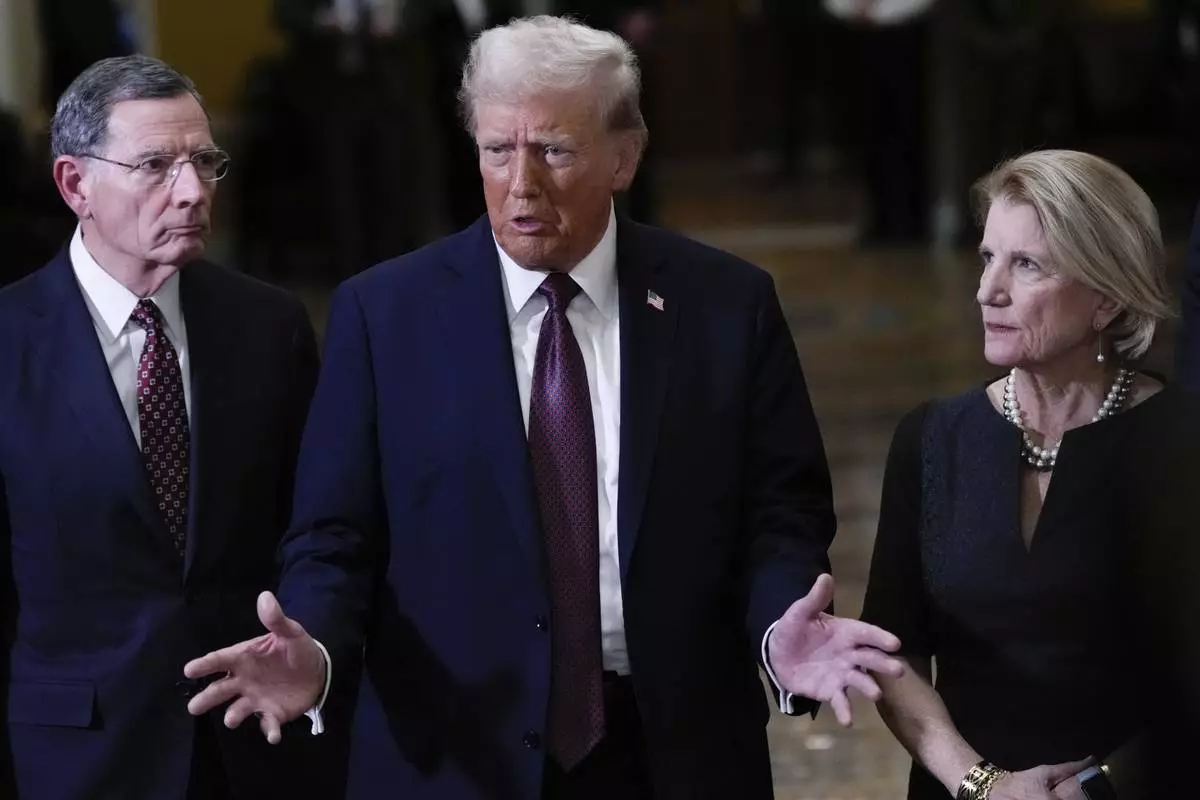
President-elect Donald Trump, flanked by Sen. John Barrasso, R-Wyo., left, Sen. Shelley Moore Capito, R-W.Va., right, talks to reporters after a meeting with Republican leadership at the Capitol on Wednesday, Jan. 8, 2025, in Washington. (AP Photo/Steve Helber)
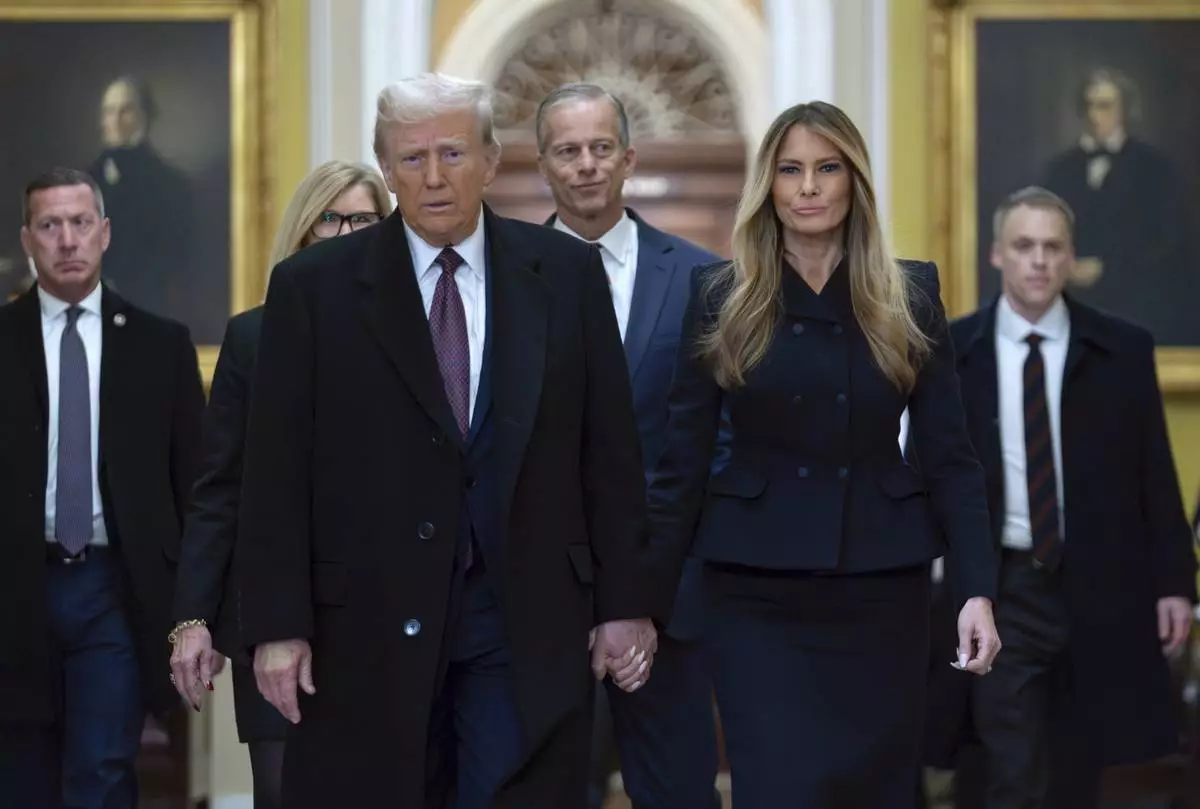
President-elect Donald Trump walks with Melania Trump at the Capitol, Wednesday, Jan. 8, 2025, in Washington, followed by Senate Majority Leader John Thune, R-S.D. (AP Photo/Jose Luis Magana)
BEIRUT (AP) — Lebanon’s parliament voted Thursday to elect army commander Joseph Aoun as head of state, filling a more than two-year-long presidential vacuum.
The vote came weeks after a tenuous ceasefire agreement halted a 14-month conflict between Israel and the Lebanese militant group Hezbollah and at a time when Lebanon’s leaders are seeking international assistance for reconstruction.
Aoun, no relation to former president Michel Aoun, was widely seen as the preferred candidate of the United States and Saudi Arabia, whose assistance Lebanon will need as it seeks to rebuild.
The session was the legislature’s 13th attempt to elect a successor to Michel Aoun, whose term ended in October 2022.
Hezbollah previously backed another candidate, Suleiman Frangieh, the leader of a small Christian party in northern Lebanon with close ties to former Syrian President Bashar Assad. However, on Wednesday, Frangieh announced he had withdrawn from the race and endorsed Aoun, clearing the way for the army chief.
Randa Slim, a senior fellow at the Washington, D.C.-based Middle East Institute, said that the military and political weakening of Hezbollah following its war with Israel and the fall of its ally, Assad, in Syria, along with international pressure to elect a president paved the way for Thursday’s result.
In a first round of voting Thursday, Aoun received 71 out of 128 votes but fell short of the two-thirds majority needed to win outright. Of the rest, 37 lawmakers cast blank ballots and 14 voted for “sovereignty and the constitution.”
In the second round, he received 99 votes.
The head of Hezbollah’s parliamentary bloc, Mohammed Raad, implied that the group's legislators had withheld their votes from Aoun in the first round but voted for him in the second in bid to show that Hezbollah - even in its diminished state - cannot be politically sidelined.
“We postponed our vote because we wanted to send a message that just as we are protectors of Lebanon’s sovereignty, we are protectors of the national accord," Raad said after the election.
Aoun was escorted by a marching band into the parliament building in downtown Beirut where he took the oath of office.
Some streets erupted in celebratory fireworks and gunshots. In Aoun’s hometown of Aichiye in Jezzine province, southern Lebanon, people waved the Lebanese flag and distributed traditional sweets, while local media showed the slaughter of a sheep in celebration.
In a speech to parliament, Aoun pledged to carry out reforms to the judicial system, fight corruption and work to consolidate the state’s right to “monopolise the carrying of weapons,” in an apparent allusion to the arms of Hezbollah.
He also promised to control the country’s borders and “ensure the activation of the security services and to discuss a strategic defense policy that will enable the Lebanese state to remove the Israeli occupation from all Lebanese territories” in southern Lebanon, where the Israeli military has not yet withdrawn from dozens of villages.
He also vowed to reconstruct “what the Israeli army destroyed in the south, east and (Beirut’s southern) suburbs.”
Lebanon’s fractious sectarian power-sharing system is prone to deadlock, both for political and procedural reasons. The small, crisis-battered Mediterranean country has been through several extended presidential vacancies, with the longest lasting nearly 2 1/2 years between May 2014 and October 2016. It ended when former President Michel Aoun was elected.
The president's role in Lebanon is limited under the power-sharing system in which the president is always a Maronite Christian, the prime minister a Sunni Muslim and the speaker of parliament Shiite.
However, only the president has the power to appoint or remove a prime minister and cabinet. The caretaker government that has run Lebanon for the last two years has reduced powers because it was not appointed by a sitting president.
Joseph Aoun is the fifth former army commander to ascend to Lebanon’s presidency, despite the fact that the country's constitution prohibits high-ranking public servants, including army commanders, from assuming the presidency during their term or within two years of stepping down.
Under normal circumstances, a presidential candidate in Lebanon can be elected by a two-thirds majority of the 128-member house in the first round of voting, or by a simple majority in a subsequent round.
But because of the constitutional issues surrounding his election, Aoun needed a two-thirds majority in the second round to clinch the election.
Aoun, 60, was appointed army chief in March 2017 and had been set to retire in January 2024, but his term was extended twice during the Israel-Hezbollah conflict. He kept a low profile and avoided media appearances and never formally announced his candidacy.
Other contenders included Jihad Azour, a former finance minister who is now the director of the Middle East and Central Asia Department at the International Monetary Fund; and Elias al-Baysari, the acting head of Lebanon’s General Security agency. Al-Baisary announced Thursday that he was pulling out of the race.
The next government will face daunting challenges apart from implementing the ceasefire agreement that ended the Israel-Hezbollah war and seeking funds for reconstruction.
Lebanon is in its sixth year of an economic and financial crisis that decimated the country's currency and wiped out the savings of many Lebanese. The cash-strapped state electricity company provides only a few hours of power a day.
The country's leaders reached a preliminary agreement with the IMF for a bail-out package in 2022 but have made limited progress on reforms required to clinch the deal.
Slim, the analyst, said that “the fact that (Aoun) has the backing of Saudi Arabia, the U.S. and the Europeans give him a big boost in terms of being able to get things done,” Slim said.
But he will still have to “navigate the contradiction that are inherent in domestic Lebanese politics,” she said, including relations with Hezbollah, which is not only a militant group but a political party with a strong base of support.
Aoun “has never had a conflictual relationship with Hezbollah, but he has also never acquiesced to Hezbollah,” Slim said.
The army commander’s relative lack of experience with economic matters means he will likely lean heavily on his advisors.

Newly-elected Lebanese President Joseph Aoun, center, smiles and waves to journalists upon his arrival at the Lebanese Parliament to be sworn in as a new president, in Beirut, Lebanon, Thursday, Jan. 9, 2025. (AP Photo/Hussein Malla)
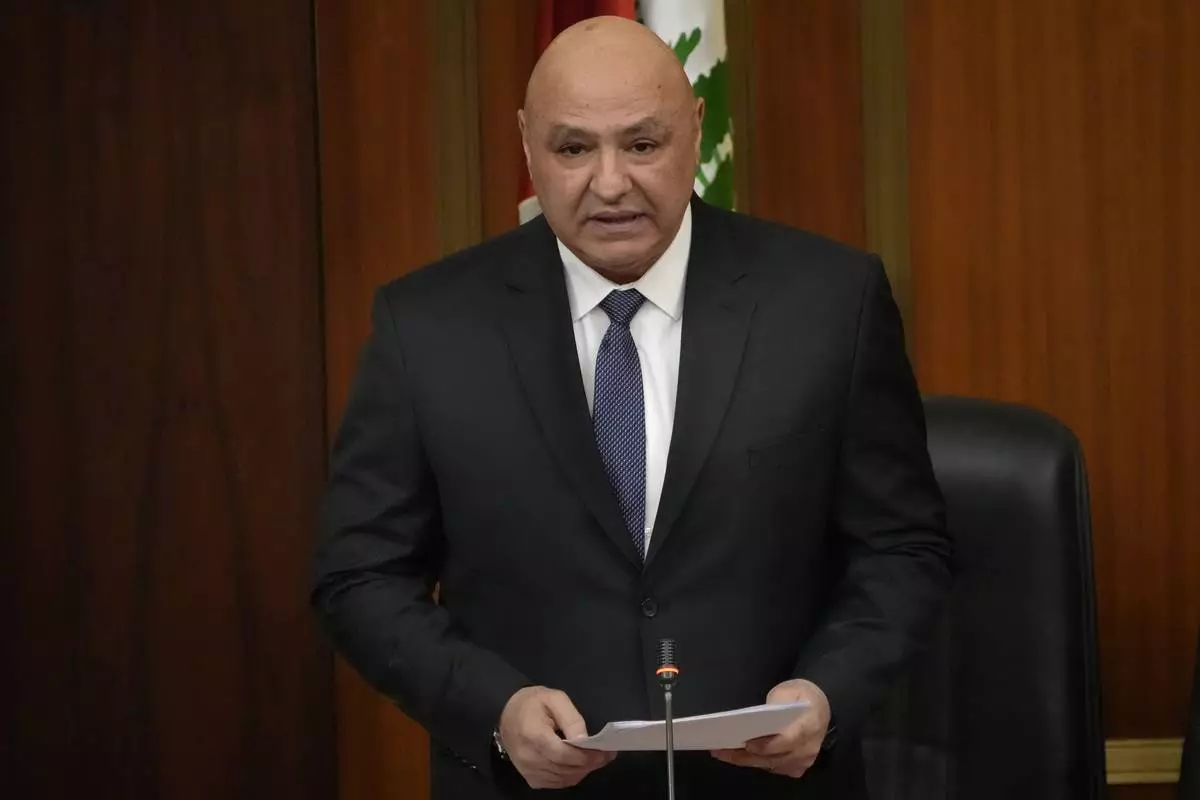
Newly-elected Lebanese President Joseph Aoun addresses his first speech at the Lebanese Parliament after being sworn in as a new president, in Beirut, Lebanon, Thursday, Jan. 9, 2025. (AP Photo/Hussein Malla)
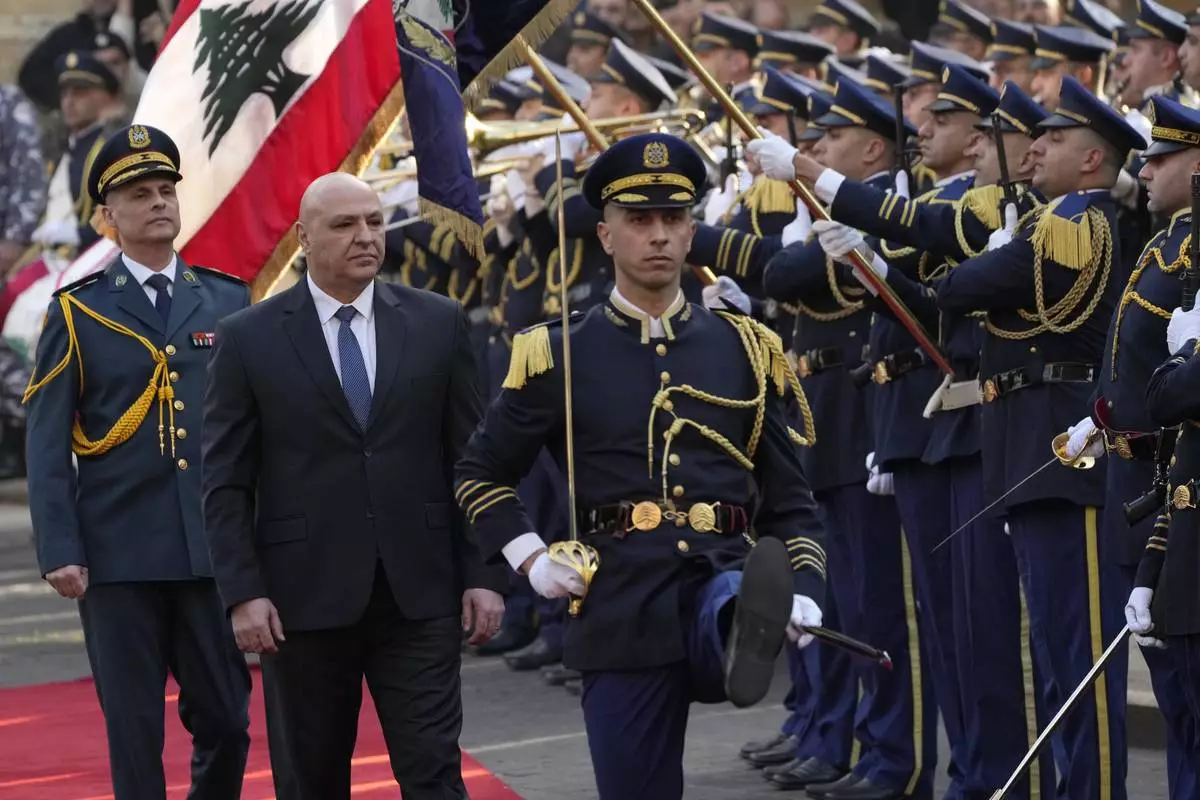
Newly-elected Lebanese President Joseph Aoun, center, reviews the honor guard upon his arrival at the Lebanese Parliament to be sworn in as a new president, in Beirut, Lebanon, Thursday, Jan. 9, 2025. (AP Photo/Hussein Malla)
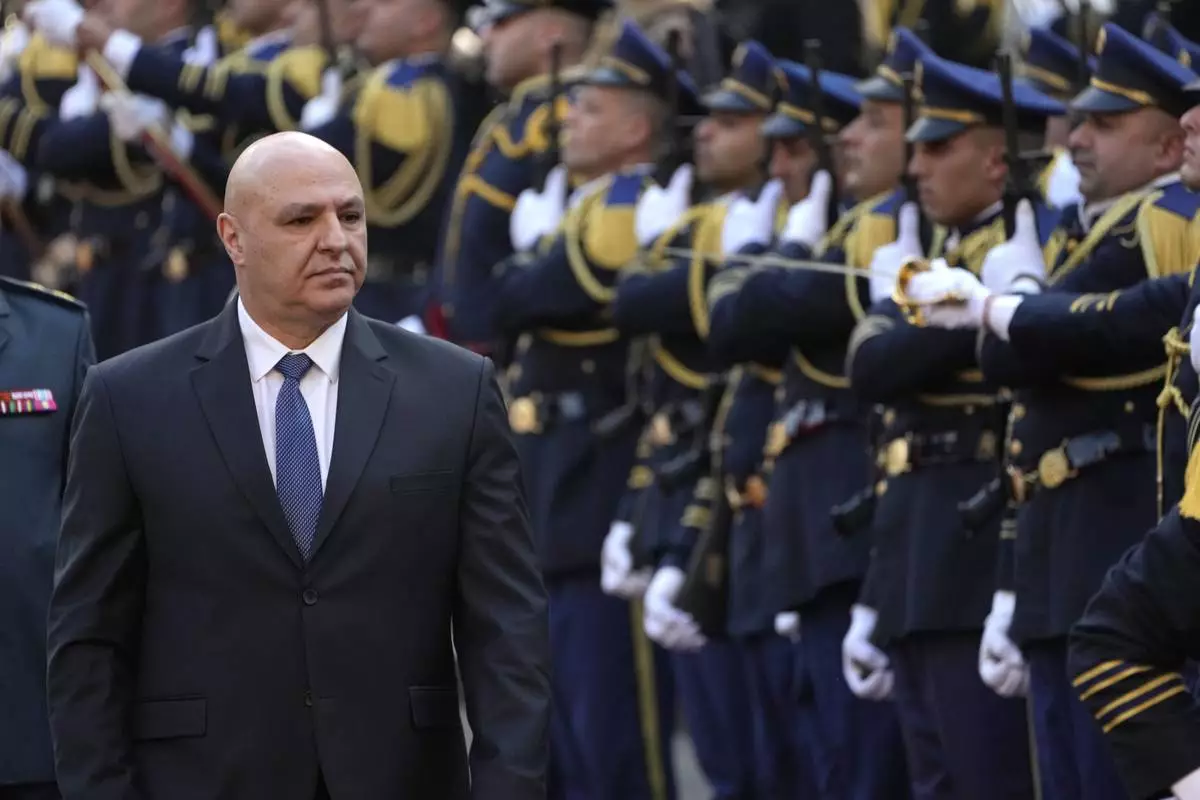
Newly-elected Lebanese President Joseph Aoun reviews the honor guard upon his arrival at the Lebanese Parliament to be sworn in as a new president, in Beirut, Lebanon, Thursday, Jan. 9, 2025. (AP Photo/Hussein Malla)
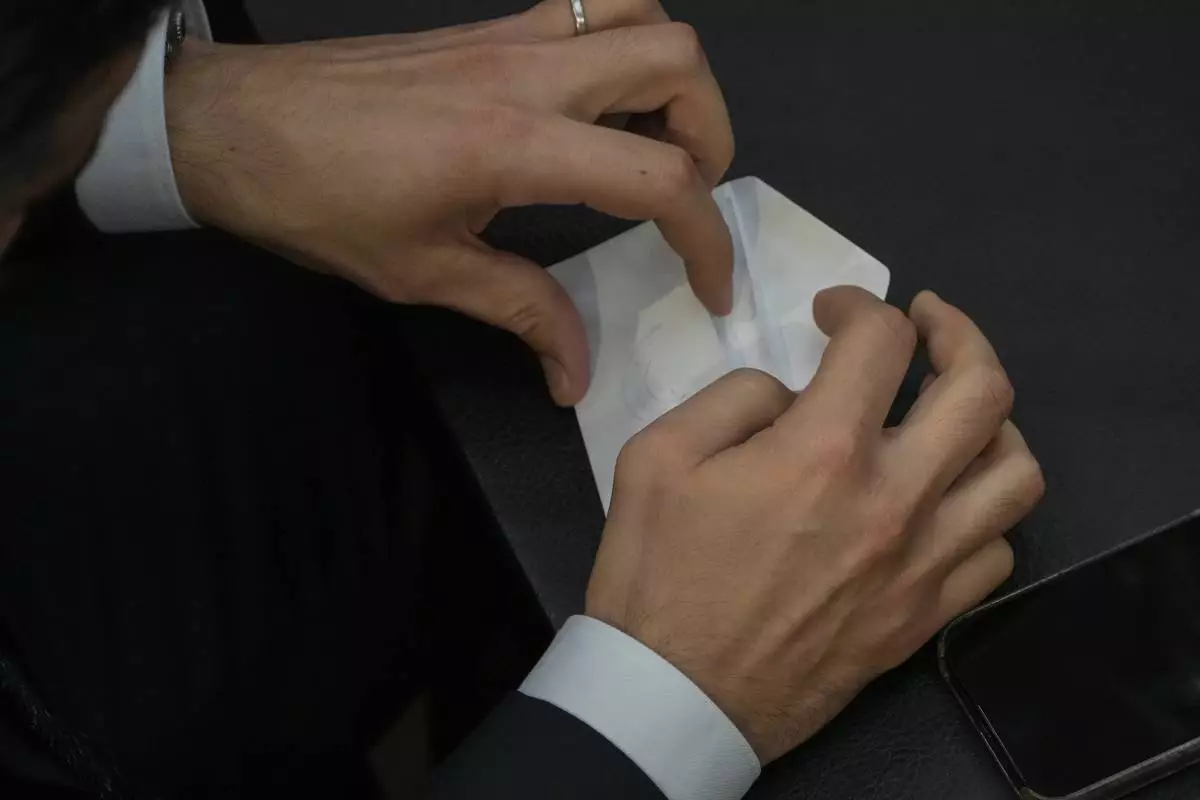
A Lebanese lawmaker casts his vote to elect a new president, at the parliament building in downtown Beirut, Lebanon, Thursday, Jan. 9, 2025. (AP Photo/Hussein Malla)
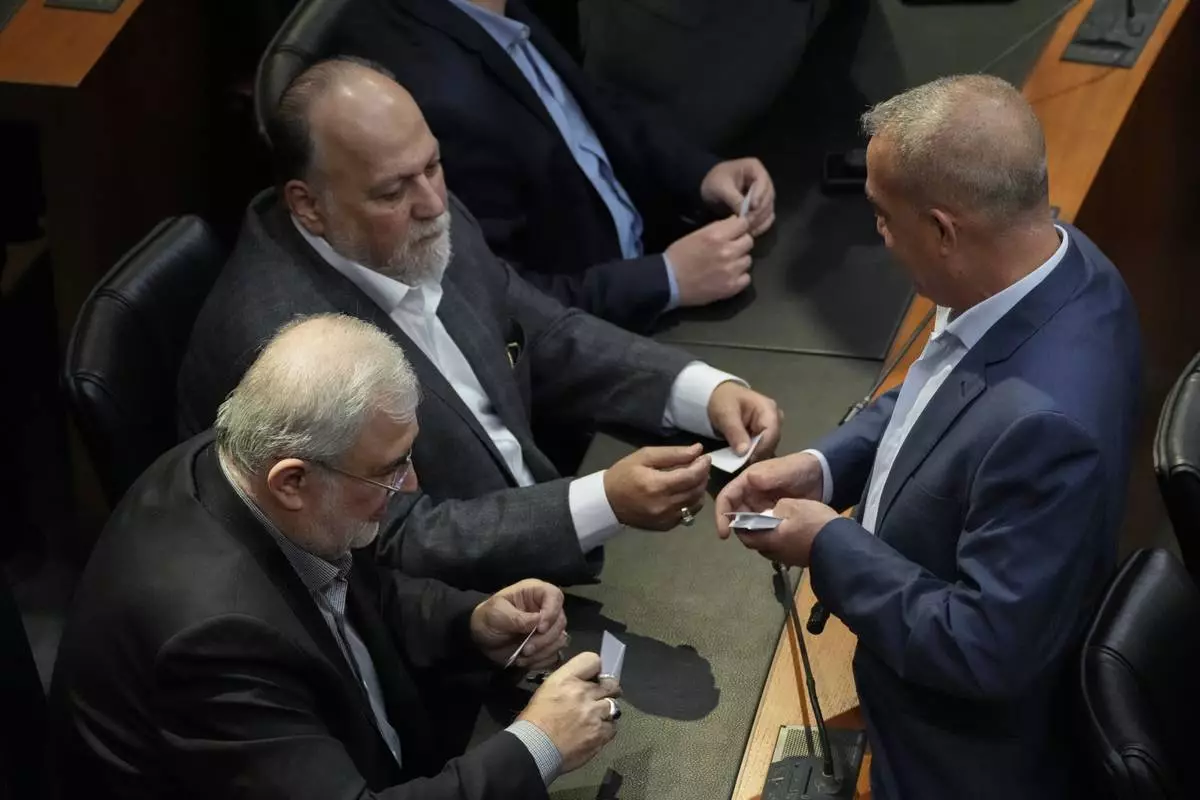
Hezbollah's parliamentary bloc members attend a parliamentary session to elect a new president, at the parliament building in downtown Beirut, Lebanon, Thursday, Jan. 9, 2025. (AP Photo/Hussein Malla)
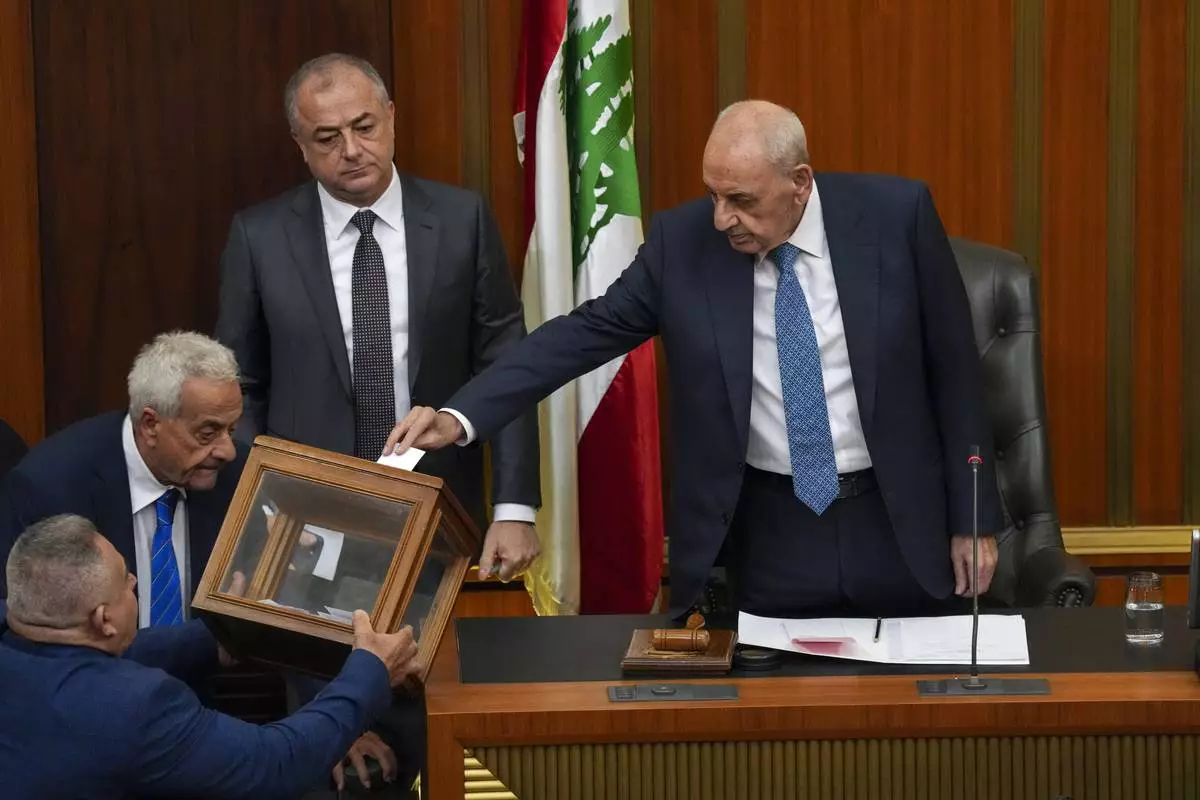
Lebanese Parliament Speaker Nabih Berri, right, casts his vote to elect a new president, at the parliament building in downtown Beirut, Lebanon, Thursday, Jan. 9, 2025. (Lebanese Parliament media office via AP)
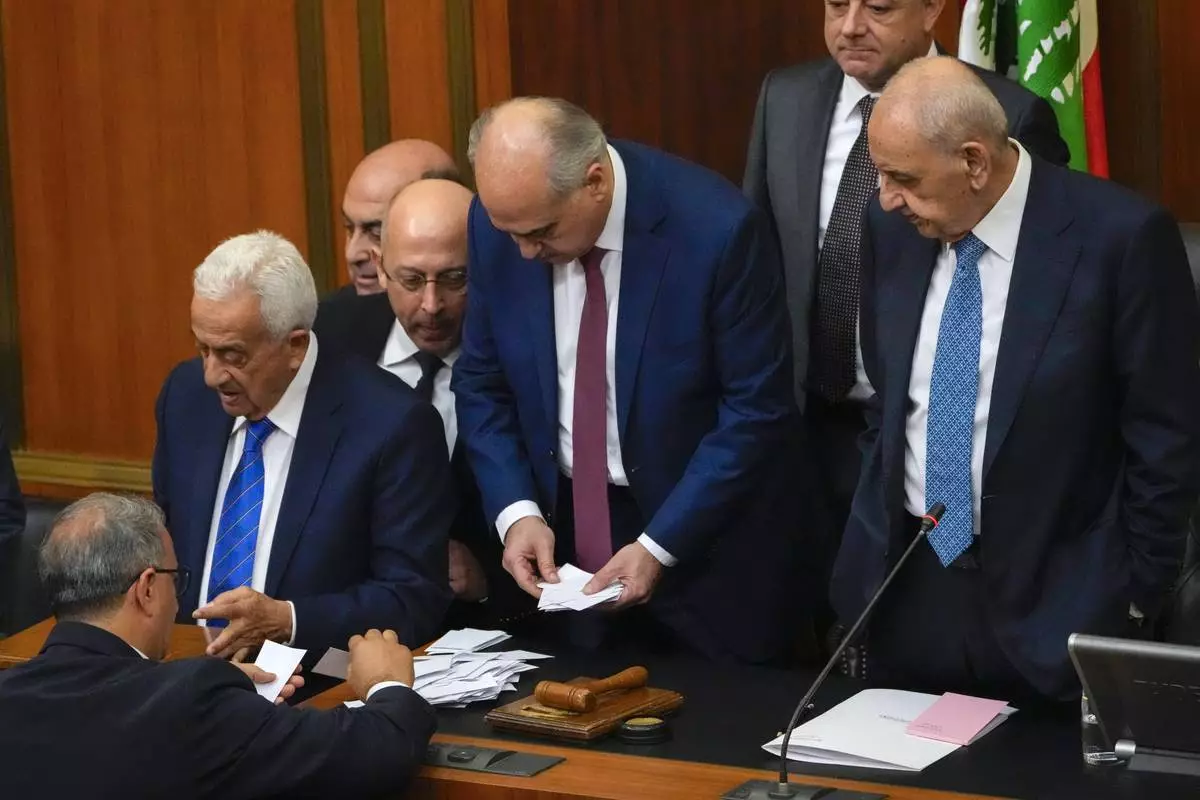
Lebanese lawmakers count the votes after casting their ballots to elect a new president, at the parliament building in downtown Beirut, Lebanon, Thursday, Jan. 9, 2025. (AP Photo/Hussein Malla)
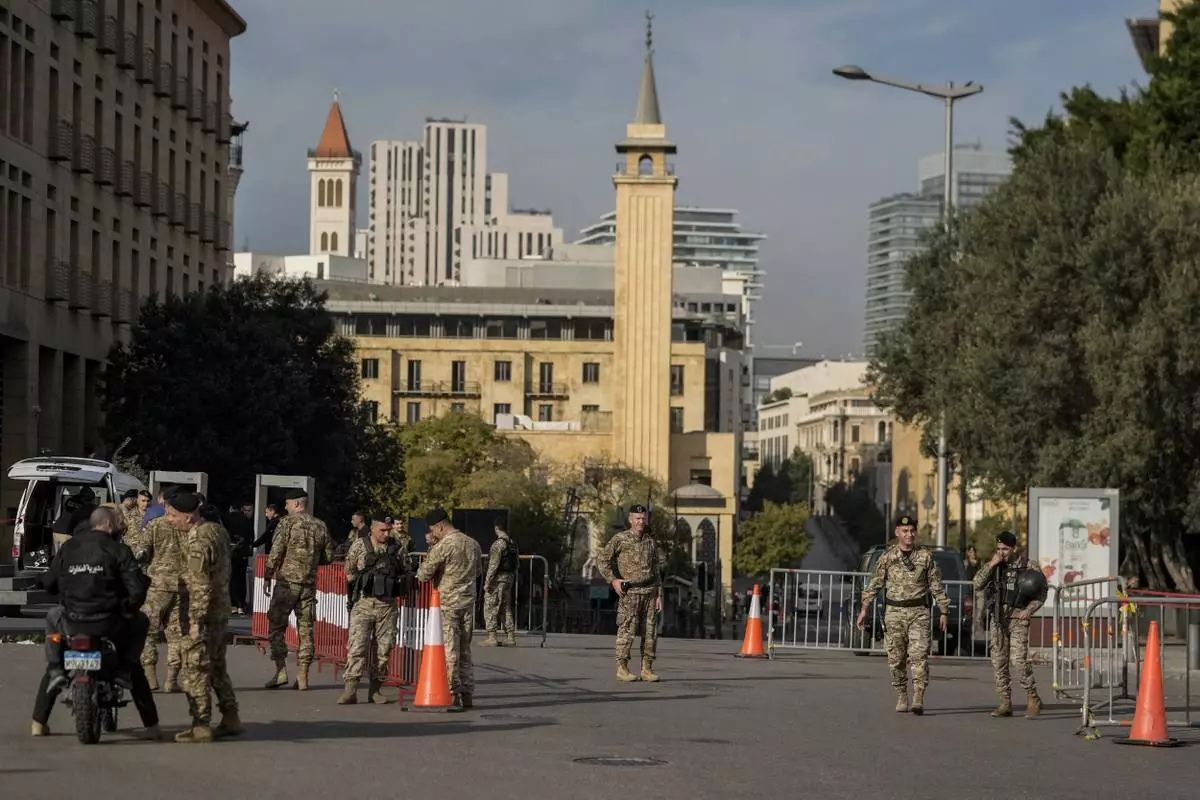
Lebanese army soldiers block a road that leads to the parliament building while lawmakers gather to elect a president in Beirut, Lebanon, Thursday, Jan. 9, 2025. (AP Photo/Bilal Hussein)
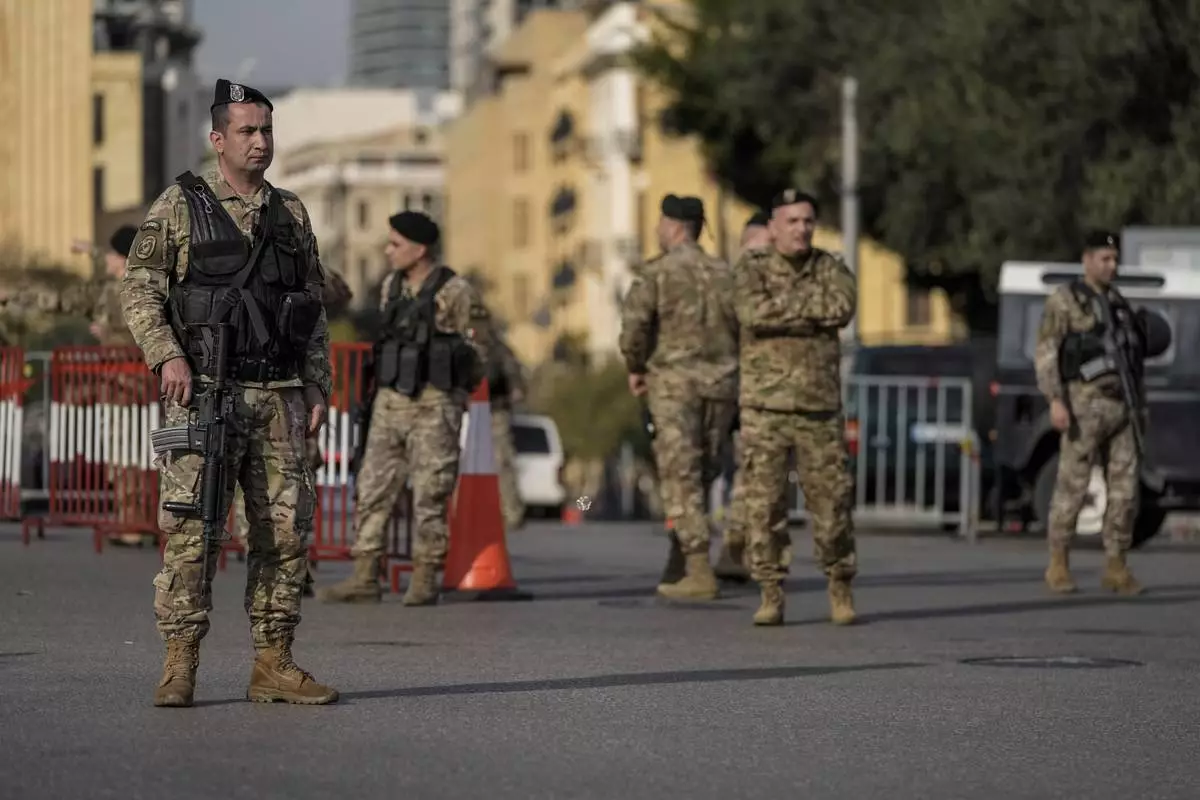
Lebanese army soldiers block a road that leads to the parliament building while lawmakers gather to elect a president in Beirut, Lebanon, Thursday, Jan. 9, 2025. (AP Photo/Bilal Hussein)
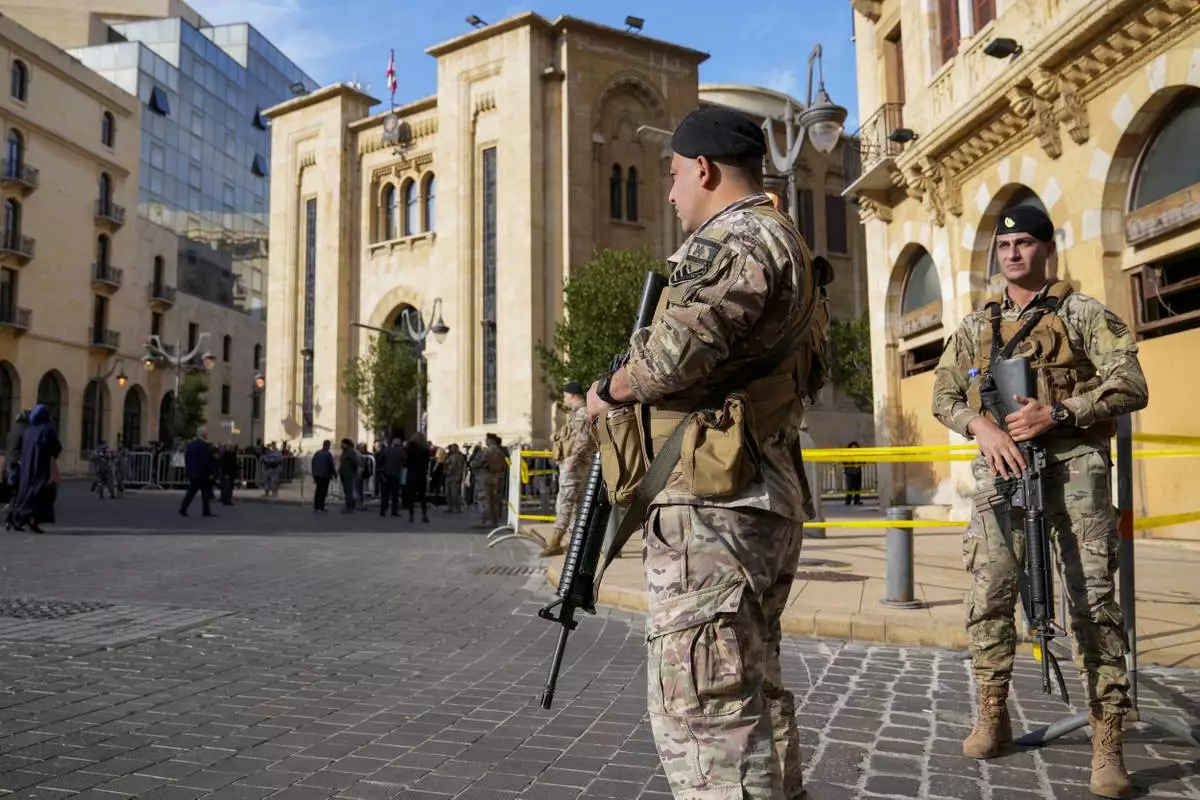
Lebanese army soldiers stand guard in front of the parliament building before a session to elect a new Lebanese president in down town Beirut, Lebanon, Thursday, Jan. 9, 2025. (AP Photo/Hussein Malla)
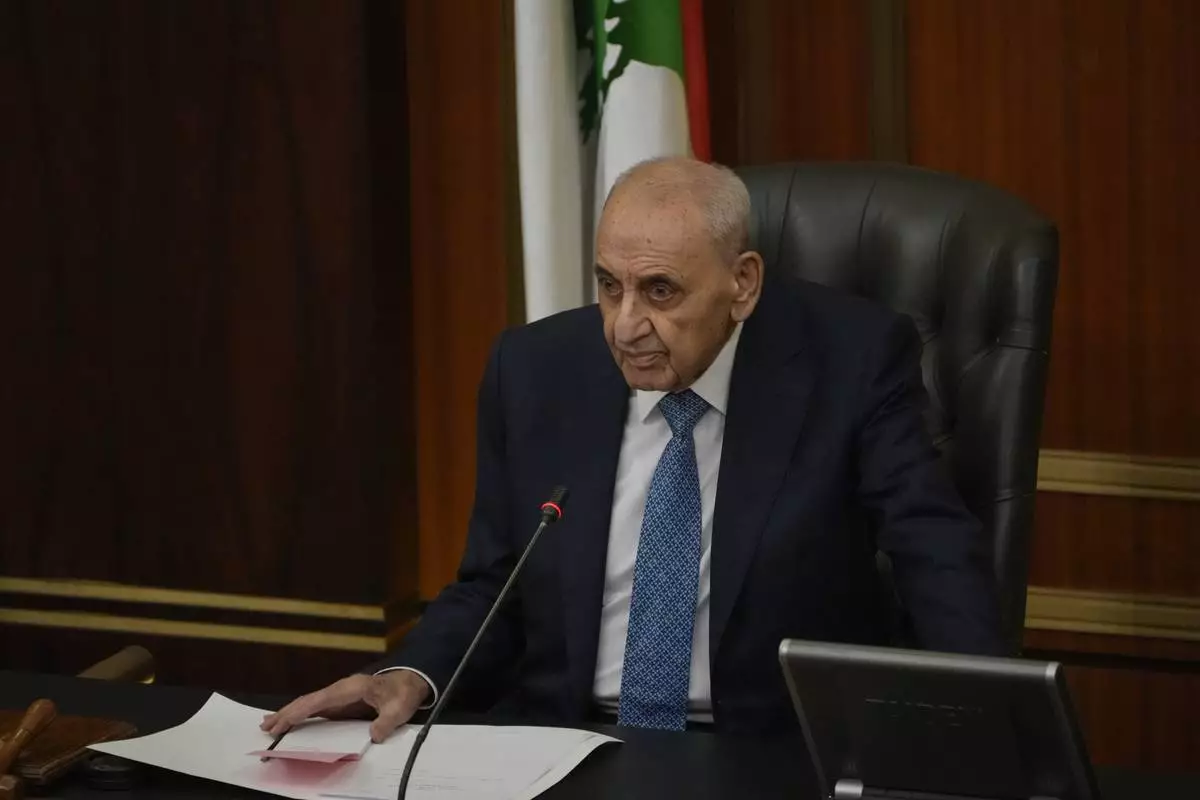
Lebanese Parliament Speaker Nabih Berri opens the session to elect a new president at the parliament building in downtown Beirut, Lebanon, Thursday, Jan. 9, 2025. (AP Photo/Hussein Malla)
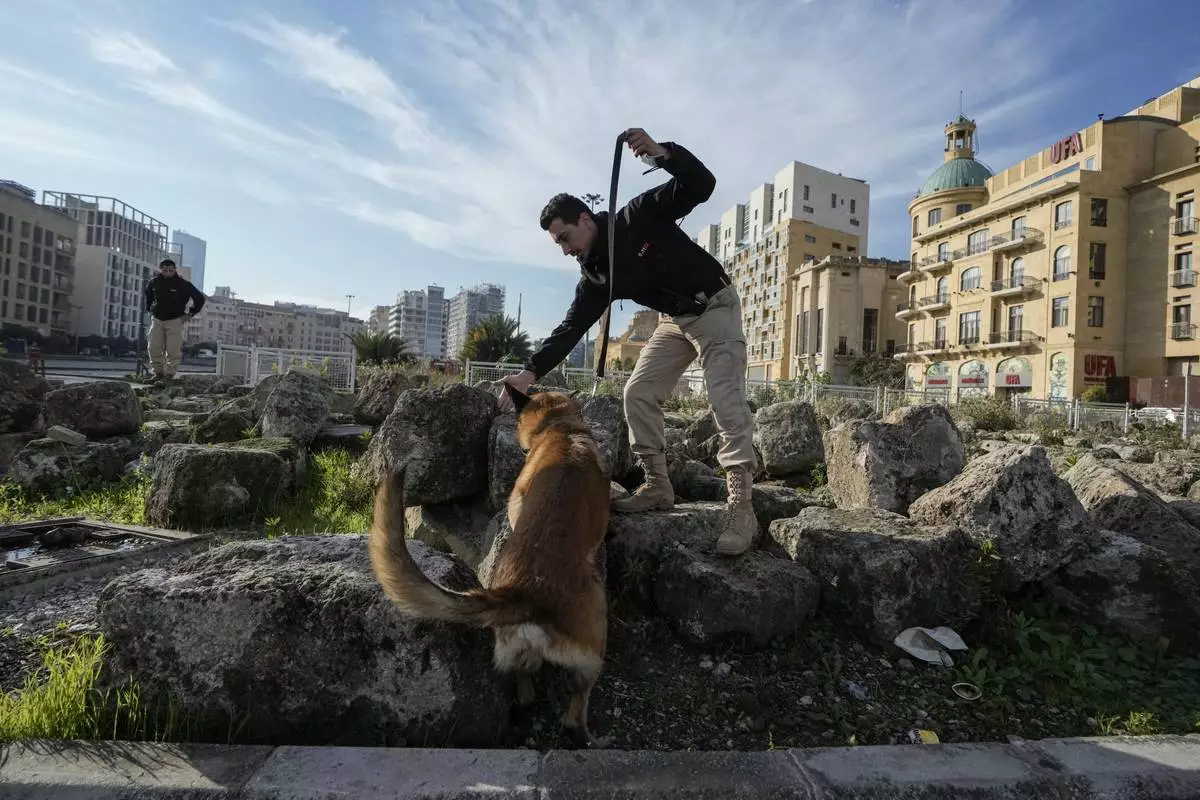
A Lebanese army soldier with a sniffer dog checks a road that leads to the parliament building while lawmakers gather to elect a president in Beirut, Lebanon, Thursday, Jan. 9, 2025. (AP Photo/Bilal Hussein)
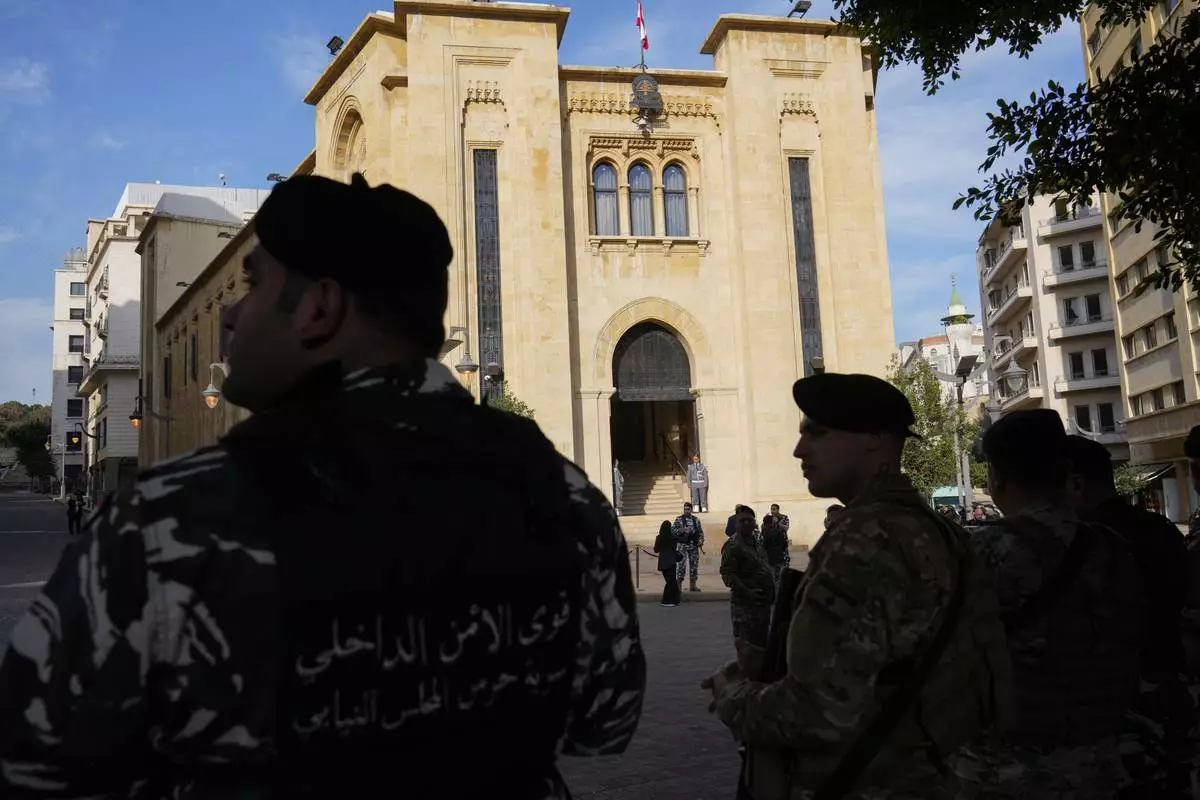
Lebanese troops stand guard in front of the parliament building before a session to elect a new Lebanese president in down town Beirut, Lebanon, Thursday, Jan. 9, 2025. (AP Photo/Hussein Malla)
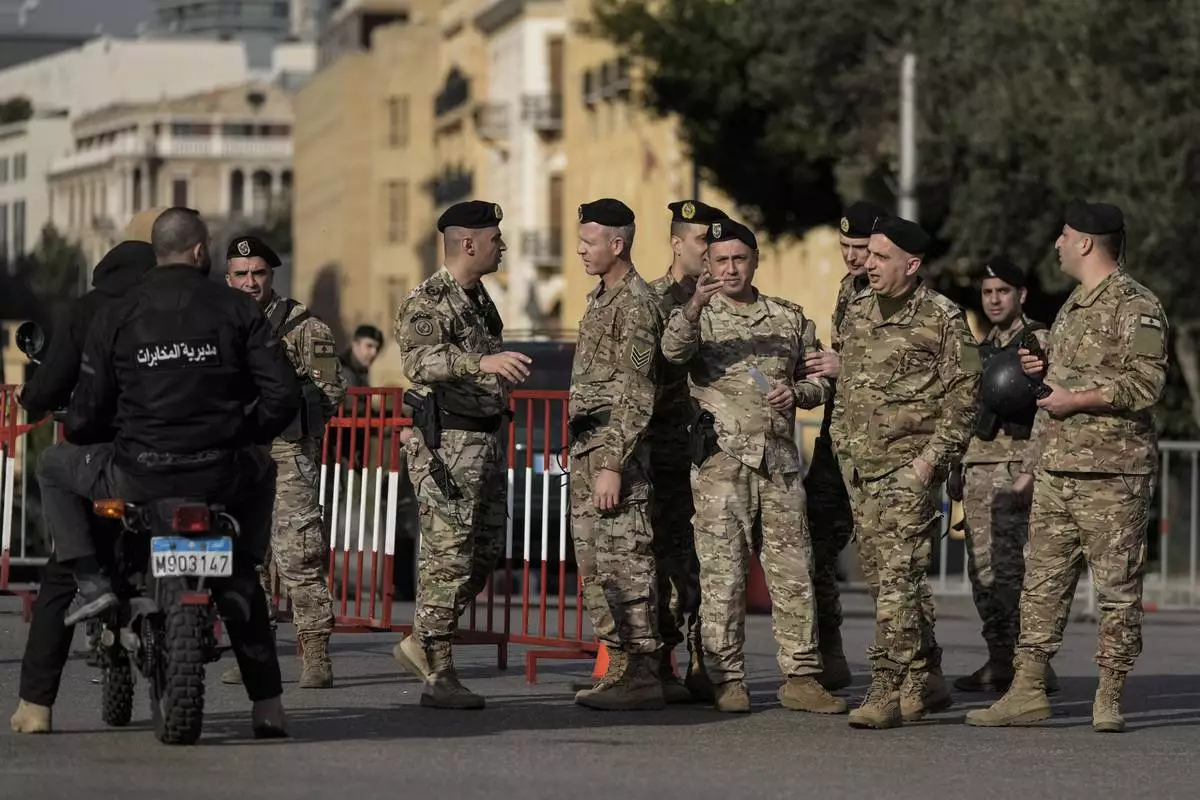
Lebanese army soldiers block a road that leads to the parliament building while lawmakers gather to elect a president in Beirut, Lebanon, Thursday, Jan. 9, 2025. (AP Photo/Bilal Hussein)
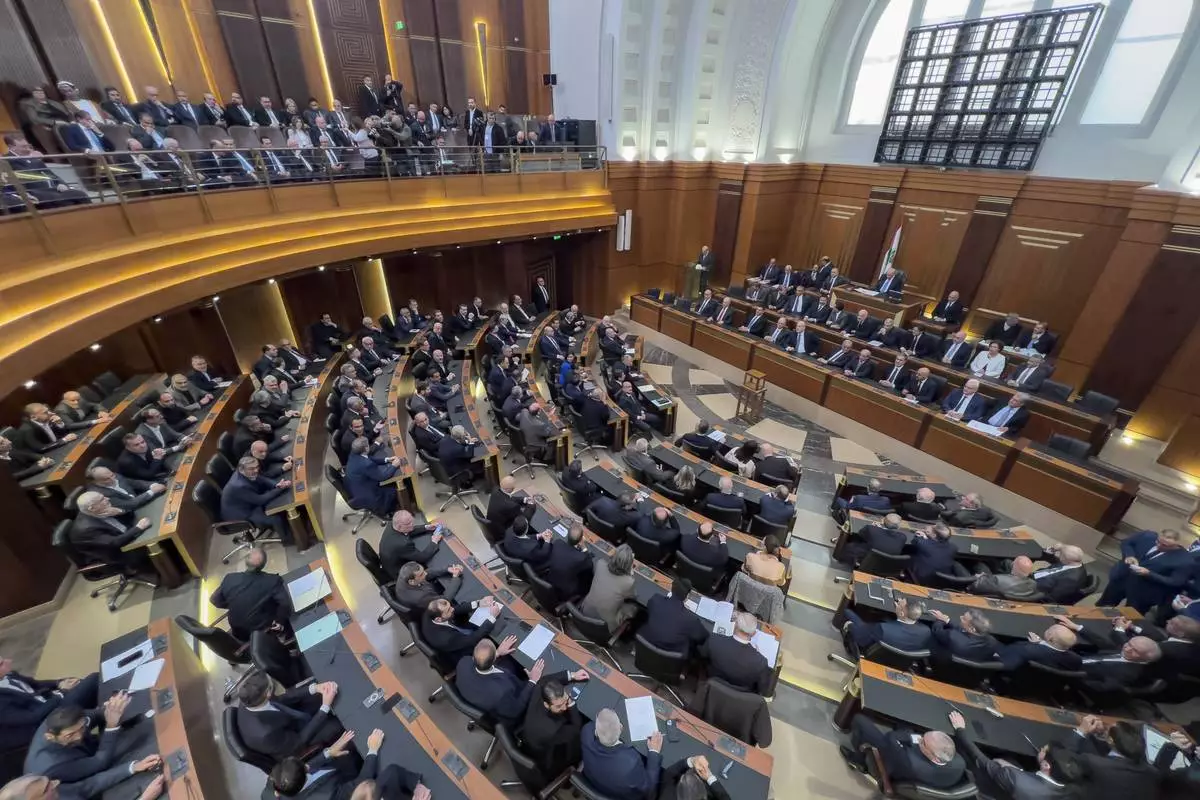
Lebanese lawmakers gather to elect a new president at the parliament building in downtown Beirut, Lebanon, Thursday, Jan. 9, 2025. (AP Photo/Hussein Malla)
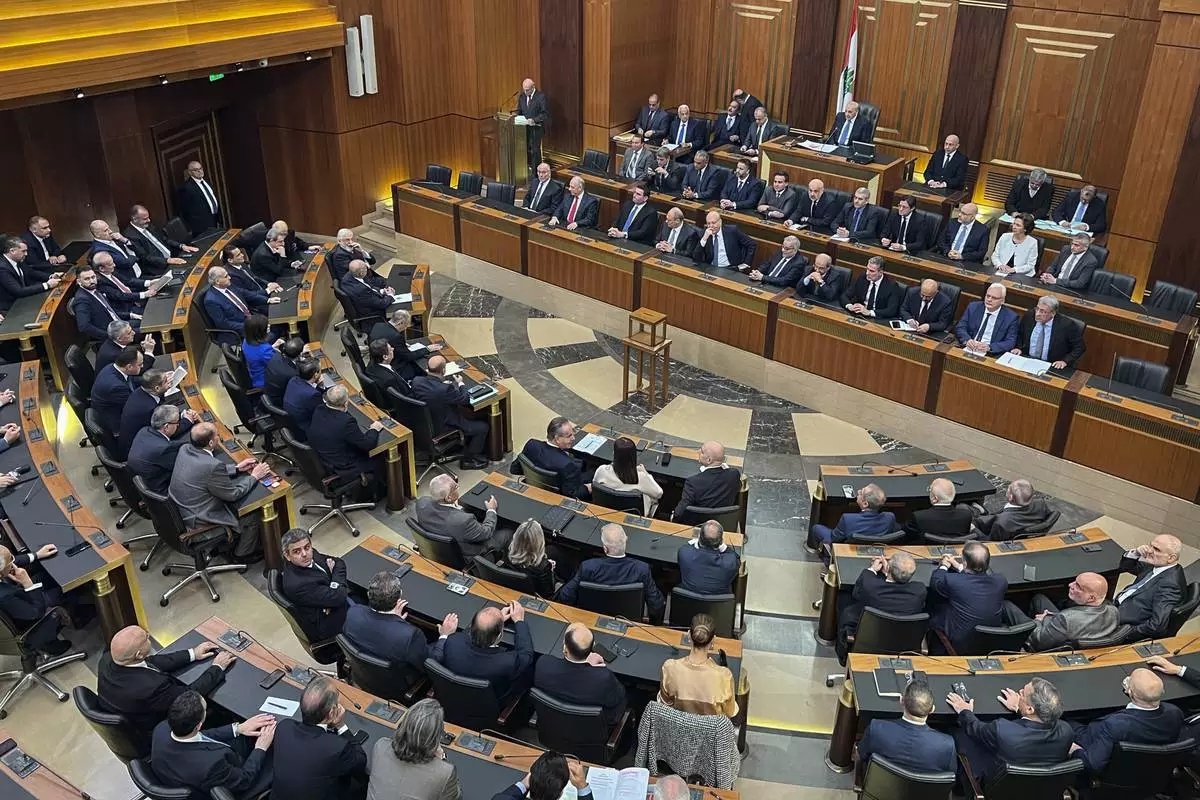
Lebanese lawmakers gather to elect a new president at the parliament building in downtown Beirut, Lebanon, Thursday, Jan. 9, 2025. (AP Photo/Hussein Malla)
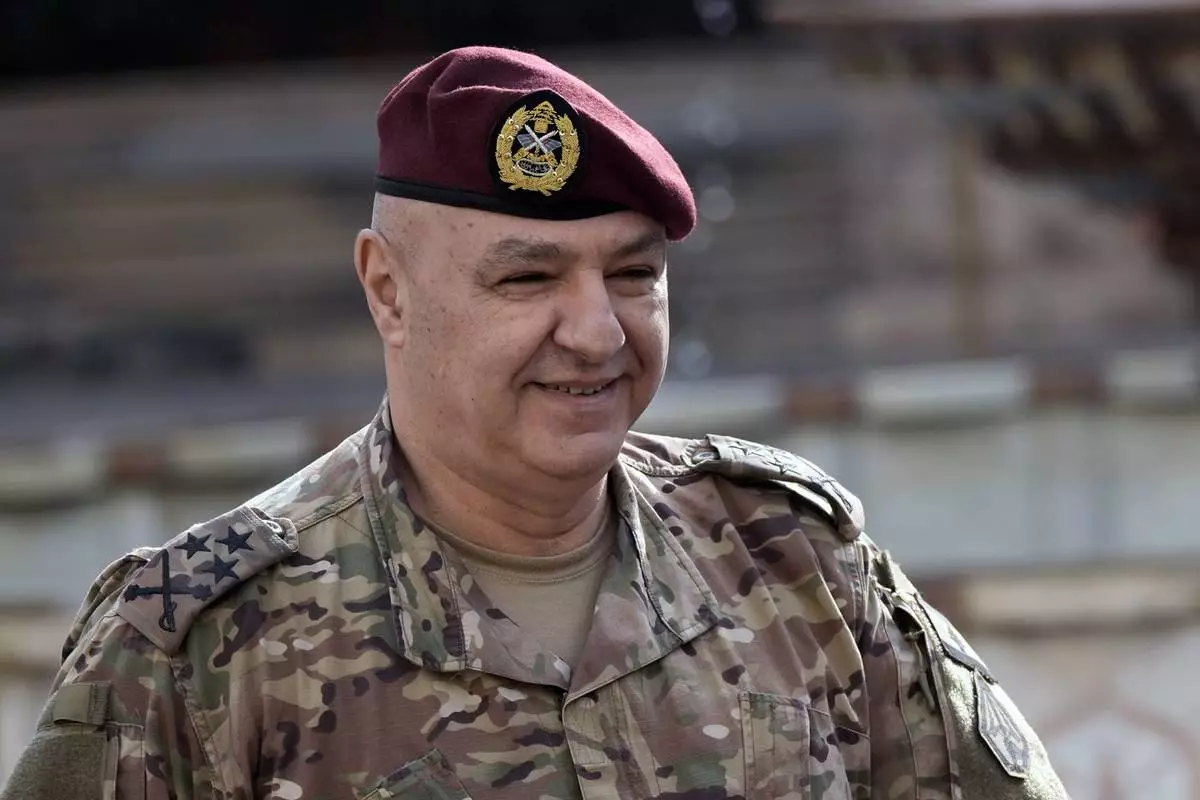
FILE - Lebanese Army Commander Gen. Joseph Aoun arrives for a meeting with Greek Prime Minister Kyriakos Mitsotakis and Lebanese caretaker Prime Minister Najib Mikati, at the government palace in Beirut, Lebanon, Dec. 16, 2024. (AP Photo/Bilal Hussein, File)
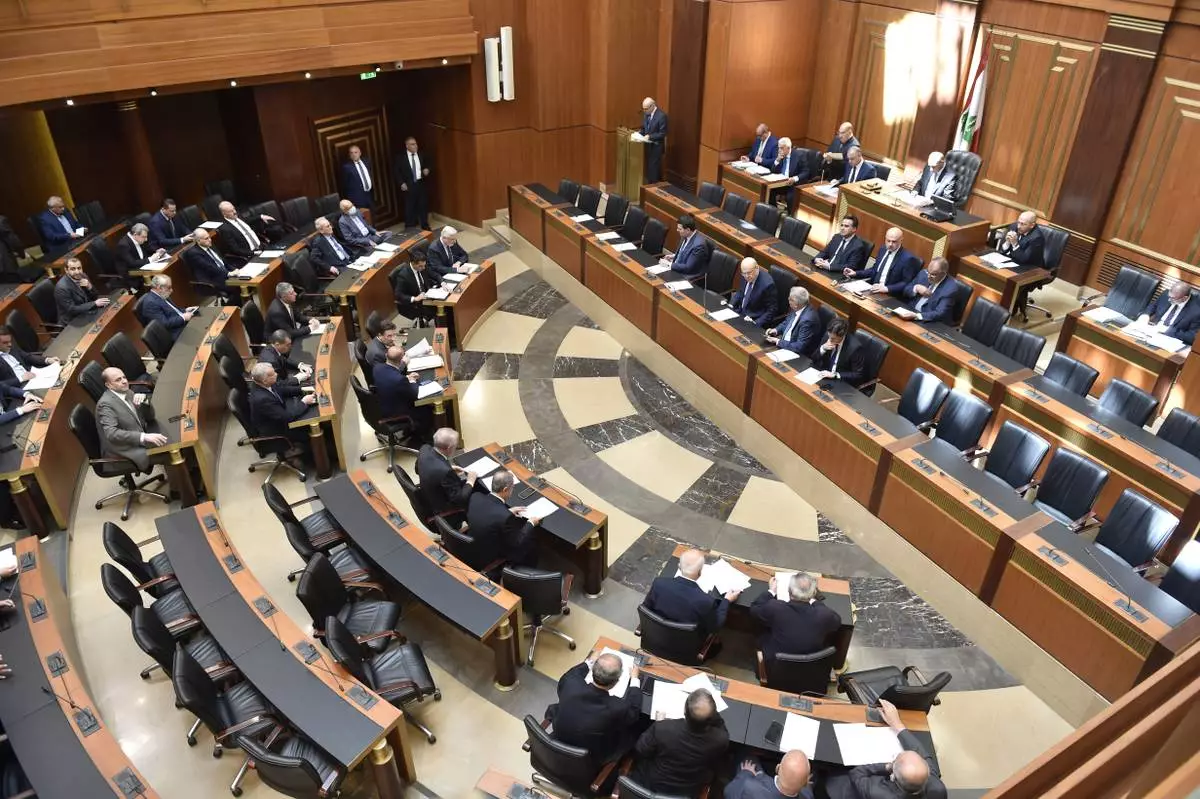
FILE - In this photo released by the Lebanese Parliament media office, Lebanese lawmakers attending a parliament session, in Beirut, Lebanon, April 18, 2023. (Hassan Ibrahim/Lebanese Parliament media office via AP, File)





